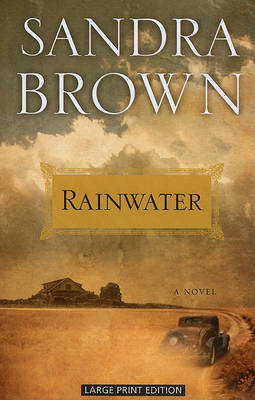Reviewed by Nadz@Totally Addicted to Reading on
Rainwater is the type of story that will tug at your heartstrings. Although not a romance, it features a great love story that will reaffirm your belief in the power of love.
The story introduces Ella Barron and David Rainwater. Ella ran a boarding house in a town called Gilead, during the time of the Great Depression. During this time corruption was rampant, jobs limited, residents were starving due to the poor economic situations and racial tensions ran high. Running the boarding house was her means of supporting herself and her autistic son.
David Rainwater is a cotton broker who suffered financial loss because of the depression. He arrived on her doorstep with a mutual acquaintance seeking to rent a room. She was nor keen on accepting taking on a new boarder, but when she learnt he was dying she reluctantly rent him a room. Little did she know accepting this new boarder would change her life in ways she would never imagine.
Mr. Rainwater is a charming and kind man. Despite Ella’s initial unpleasantness towards him, he remains patient in his dealings with her. I especially loved how he treated her son, Solly. When everyone else treated him as insane and stupid, he handled him with compassion. As a result helped Ella to recognise her son’s true potential. He is a firm believer in standing firm in one’s beliefs no matter the consequences. He showed this trait by his willingness to help the blacks and the whites of Shanty Town in their fight for survival. This he did at great personal risk. Despite, his brave facade it is clear he was scared regarding his health which showed his vulnerability. However, he never allowed his fears to dictate how he lived his life.
My first reaction to Ella was not favourable. However, the more I learnt about her I developed a great appreciation for her. She proved to be a woman of strength. Amidst the struggle of raising an autistic child, in a time when knowledge of autism was non-existent, she still found to offer a helping hand to friends and strangers alike. Despite living in a world where racism was rampant, she never allowed it to determine how she treated those with whom she came in contact. She saw everyone has humans no matter the colour of their skin.
Ella and Mr. Rainwater were developing feelings for each other. Their feelings developed slowly, and they cautiously entered a relationship. This occurred at around eighty percent into the story. As you can imagine their romance was bittersweet given the circumstances surrounding Mr. Rainwater’s health.
Some may consider the story depressing due to the events, but for me it was a reminder of the good and bad things that life has to offer. How we handle the tragedies that come our way determines our mettle. Ella Barron proved, despite the tragedies she encountered she could rise above them and live her life to the fullest.
A thing of note, which some readers may find abhorrent, was the culling and slaughtering of livestock. It was not pretty, but it reflected one of the many tragedies of that era.
Despite my loving this book, I had an issue. I was disappointed with the ending, which felt rushed and which I thought could do with a little more development.
Conclusion/Recommendation
Overall, this was a compelling and heart-wrenching read, which shared one woman’s story of survival, hope and love. Readers will be carried to the time of the Great Depression in this bittersweet tale of love and loss.
Reading updates
- Started reading
- 20 April, 2018: Finished reading
- 20 April, 2018: Reviewed
